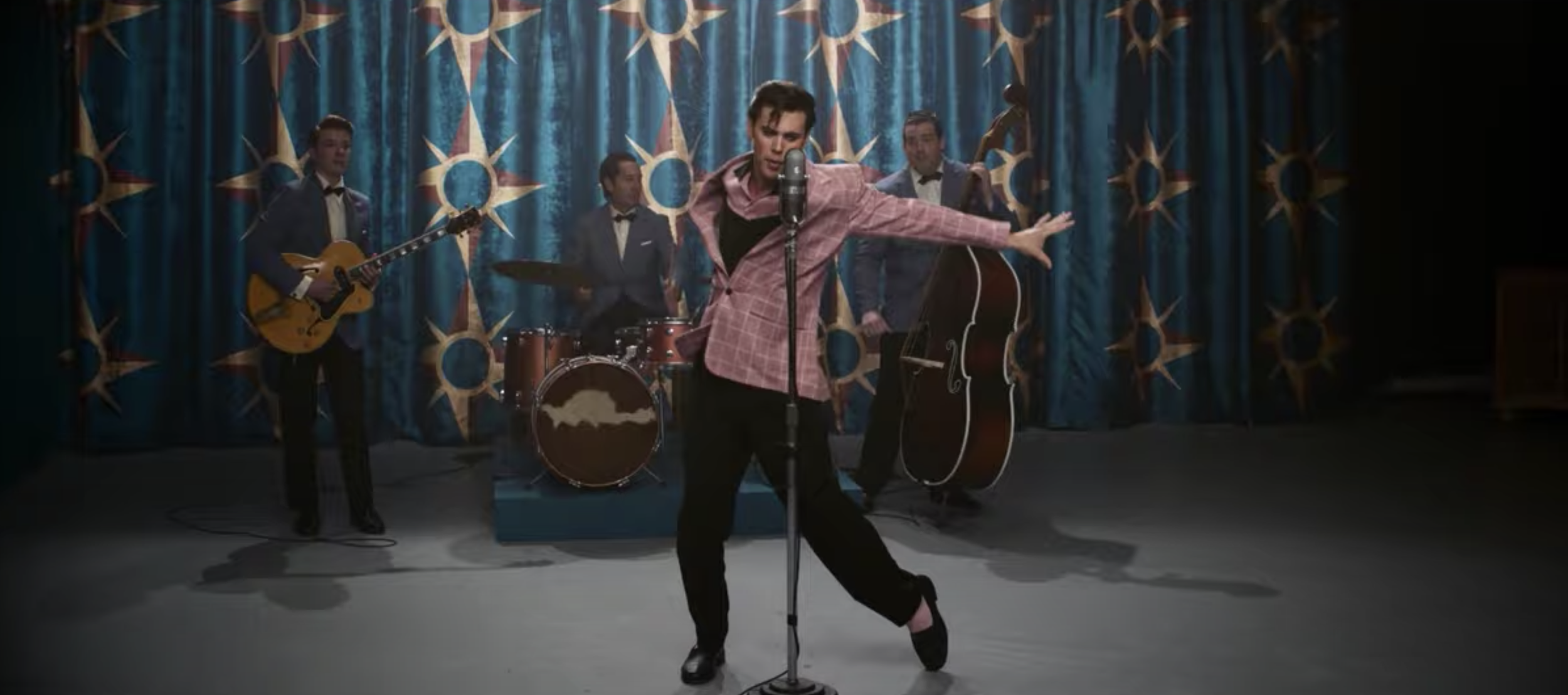Elliot Wheeler: The Man Who Brought Elvis Back to Life
This piece was originally published on FilmSpeak.
Baz Luhrmann’s Elvis is a sensory overload. Over the course of the nearly three-hour-long film, only two minutes are not accompanied by music, and much of that music is a brand new score by Elliot Wheeler. Without Wheeler’s score, the film simply wouldn’t have the same flair, as he manages to weave music from The King himself with that of contemporary musicians like Stevie Nicks, Britney Spears, Diplo, and more.
Wheeler sat down with FilmSpeak to talk about how he started making music, the collaborative process with Luhrmann, and how Elliot was even able to work Spears’ “Toxic” into the sprawling Elvis film.
Long before Wheeler collaborated with Luhrmann on projects like Elvis, The Great Gatsby, and The Get Down, he was learning the piano and trombone. He studied classical music and played a lot of jazz before starting “formal composition study” and a philosophy degree. “Neither of which I finished,” Wheeler laughed. “As all good musicians do.”
courtesy of prudence upton
In his early twenties, Wheeler got his start composing for television and movies under the wing of composer Peter Kaldor. Wheeler grew up loving film, so this direction in his career was natural. “There’s something really freeing about being able to tell other people’s stories,” Wheeler says. Working with a script and a plan for the film allows him to “creatively unlock a lot of the barriers” that arise when composing music for himself.
Elvis is Wheeler’s third project with Luhrmann, and their storied working relationship allowed for a creatively collaborative development process. All the conversations Wheeler and Luhrmann had would come back to the storytelling aspect. Despite the overwhelming number (800) of Elvis songs Wheeler had to familiarize himself with, the preparation and research became “the pathway. The story starts unlocking itself. Working with Baz, the music is brought in at such an early stage with story development and script development.”
Scores include repeated themes to denote specific characters or relationships. Wheeler took different Elvis songs and turned them into thematic stings. His favorite moment of the score is called “The Ferris Wheel.” It’s a scene that happens fairly early in the film when the Colonel (Tom Hanks) is “pitching the notion of becoming Elvis’ (Austin Butler) sole representative. And within that, we have their romance theme which is ‘Glory Glory Hallelujah.’ We’ve got Elvis’ theme with his mother, Gladys (Helen Thomson), which is ‘Heartbreak Hotel.’ Elvis’ theme with his audience which is ‘Unchained Melody.’ We’ve got ‘Suspicious Minds’ in there too.”
warner brothers
After the film’s premiere at Cannes, rumors swirled that Elvis featured a sample of Britney Spears’ “Toxic,” and Wheeler confirmed he did use the opening melody within the film. “It’s in there!” Wheeler exclaimed. “In a place called the Hollywood Montage. It’s the backing tracking underneath ‘Viva Las Vegas.’” Spears is not the only contemporary musical act that’s featured in the film. Country singer Kacey Musgraves can be heard covering “Can’t Help Falling In Love” during the scene where Elvis and Priscilla Presley’s (Olivia DeJonge) relationship is introduced. Doja Cat was played in a portion of Shonka Dukureh’s cover of “Hound Dog” and featured it in her new song for the movie “Vegas.” Wheeler chose to include new music by Doja Cat to give modern audiences an understanding of what bustling Beale Street was like back in Elvis’ day. “For something like Beale Street, which was the most happening place for African American music in the 1950s, we were like, well, if Elvis is going down onto Beale Street now, who would he be hearing?” Wheeler explained. “Well, it would be Doja Cat.”
The anecdote about Beale Street speaks to the larger success of Elvis. Many people seeing the film will not have grown up watching his meteoric rise in real time. Luhrmann and Wheeler combined their talents in the script and the music to demonstrate Elvis’ impact through a modern lens. His legacy is more than just music and hip-shaking appeal. Wheeler’s score seamlessly blends the historic and the modern to give The King his due.
Follow me on BlueSky, Instagram, Letterboxd, YouTube, & Facebook. Check out Movies with My Dad, a new podcast recorded on the car ride home from the movies.


